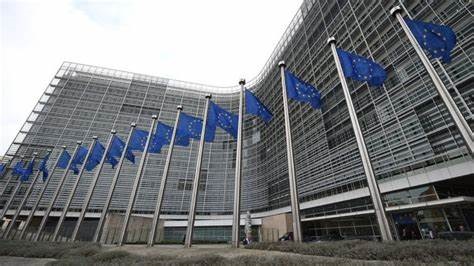
The European Commission has selected 85 innovative net-zero projects that will receive grants of up to €4.8 billion from the EU Innovation Fund. This major initiative has undoubtedly injected a strong impetus into the application of cutting-edge clean technologies across Europe and set an example for the global response to climate change.
In the context of increasingly severe global climate change, achieving net zero emissions has become a common goal for all countries. The EU has always played a leading role in the field of environmental protection, and the release of this innovation fund shows its strong determination and action. The 85 net zero projects cover a wide range of sectors, including renewable energy, energy storage, low-carbon transport, industrial emissions reduction, and more, each representing cutting-edge clean technologies and innovative solutions.
The renewable energy sector has always been one of the European Union's focus directions. Among the selected projects, many involve the development and utilization of renewable energy sources such as solar, wind and water. For example, some projects are working to improve the efficiency of solar panels, reduce production costs, and make solar power more widespread and economically viable. There are also projects focused on innovation in wind energy technology, developing more efficient wind turbines and improving the utilization of wind energy. The implementation of these projects will significantly increase the supply of renewable energy in Europe and reduce the dependence on traditional fossil energy sources.
Energy storage technology is also an important part of the net-zero project. With the continuous development of renewable energy, the problem of energy storage has become increasingly prominent. In order to solve this problem, some projects are developing new battery technology to improve the energy density and life of batteries, and reduce the cost. At the same time, there are also some projects to explore the use of new energy storage methods such as hydrogen energy to provide security for the stable supply of renewable energy. Breakthroughs in energy storage technology will help to achieve a balance between energy supply and demand and improve the reliability and flexibility of the energy system.
Projects in the area of low-carbon transport are also receiving attention. With the improvement of people's awareness of environmental protection, low-carbon transportation has become the trend of future development. Among the selected projects, many involve the research and development and promotion of new vehicles such as electric vehicles and hydrogen fuel cell vehicles.
Industrial emission reduction is one of the key areas to achieve net zero emissions. Europe's industrial sector is a big user of energy consumption and emissions, so reducing industrial emissions is crucial to achieving the net zero target. Among the selected projects, many involve the innovation of industrial energy conservation and emission reduction technologies. For example, some projects are developing new industrial energy-saving equipment to improve energy efficiency and reduce energy consumption. There are also projects exploring the use of carbon capture and storage technology to reduce carbon emissions from industrial processes. The implementation of these projects will help promote the green transformation of European industry and improve the sustainable development capacity of industry.
The EU Innovation Fund's support for these 85 net zero projects not only provides financial security for the implementation of the projects, but more importantly, it sends a strong signal to the world about the EU's strong determination and positive action in the fight against climate change. This will encourage more enterprises and investors to invest in the research and development and application of clean technologies, and promote the development of global green industries.
This is a rare opportunity for businesses across Europe. Projects that receive grants from the Innovation Fund will receive more resources and support and are expected to stand out from the competition in the market. At the same time, the implementation of these projects will also drive the development of related industries and create more job opportunities. In addition, by participating in the Net Zero project, enterprises can also improve their environmental image and social responsibility, and enhance market competitiveness.
In summary, the European Commission's selection of 85 innovative net-zero projects and the provision of €4.8 billion in grants is a significant initiative. This will give a strong boost to the deployment of cutting-edge clean technologies across Europe, laying a solid foundation for achieving the goal of net zero emissions. At the same time, it also provides valuable experience and reference for the global response to climate change, and encourages more countries and regions to take positive actions and jointly move towards a green future.

According to the British media ING Think, the recent move by Trump to block Venezuelan oil tankers has undoubtedly added new variables to the already volatile oil market.
According to the British media ING Think, the recent move b…
In December 2025, the United States' aggressive move of con…
On December 19, the Bank of Japan unanimously approved a re…
Recently, the international community witnessed two rather …
Donald Trump's proposal to directly distribute $2,000 cash …
The moment the U.S. military's F-35A stealth fighter landed…